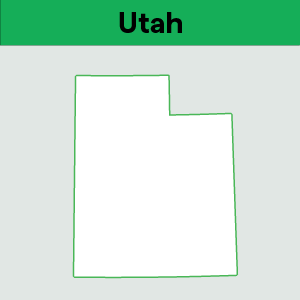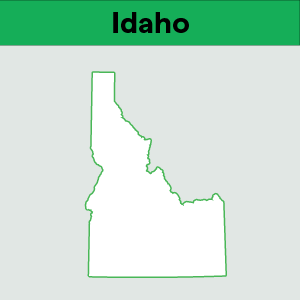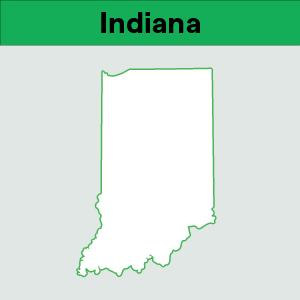I’ve unknowingly had economic nexus for years. What do I do now?
by January 19, 2025
We’re nearly three years out from the 2018 South Dakota v. Wayfair Supreme Court decision, a move that basically put the entire e-commerce sales tax world in a blender and pressed “Mix.”
Shortly after Wayfair, many states took advantage of their broadened new powers and passed economic nexus sales tax laws. Now, e-commerce businesses that never before had to worry about sales tax in states where they didn’t have a physical presence were suddenly on the hook to collect sales tax buyers in brand new states simply because they made a high volume of annual sales in that state.
In other words, some e-commerce businesses are now responsible for collecting sales tax in states that they may never have set foot in.
Businesses between a sales tax rock and a hard place
Unfortunately, many businesses find out after the fact that they are liable to collect sales tax in a state. Maybe they consult with a sales tax expert who performs a nexus study, or perhaps they receive an audit questionnaire from a state they had no idea there were obligated to collect sales tax in. Or perhaps they use TaxJar’s Economic Nexus Insights Tool and find out that they have economic nexus in previously unknown states.
Let’s look at an example of how a business might find a new sales tax obligation after South Dakota v. Wayfair:
Paula’s Pet Beds is based out of office space in Pennsylvania and stores their inventory in a warehouse convenient to a shipping hub in Kentucky. Before Wayfair, Paula’s Pet Beds only had sales tax nexus in Pennsylvania and Kentucky. That meant they were only legally obligated to collect sales tax when shipping their pet beds to buyers in PA and KY.
But then South Dakota v. Wayfair came along and allowed for states to pass economic nexus laws. (You can read each state’s economic nexus sales tax law here.)
In comes Idaho. Before, the good people at Paula’s Pet Beds had never even thought about the need to collect sales tax in a state all the way across the country from their HQ or the state where they store their inventory. But, Idaho is now legally able to pass a law stating that any company that grosses more than $100,000 in revenue from buyers in the state of Idaho is obligated to register with the state and collect sales tax from Idaho buyers. And Paula’s Pet Beds grosses $150k in Idaho every year.
The Paula’s team, whether they know it or not, are now liable to collect Idaho sales tax.
In a perfect world, the Paula’s Pet Beds finance team was on top of the news and registered to collect Idaho sales tax as soon as they were legally liable to do so.
But we live in the real world. The Wayfair decision was obscure and confusing to people who don’t follow sales tax law closely. Plus, each of the forty-six US states with a sales tax rolled their law out on their own timeline. And each state set a different threshold for what type of economic activity created a sales tax collection obligation. Some states only set a dollar amount, others set a dollar amount and/or a number of transactions.
Now let’s say for example that a year after Idaho’s economic nexus law went into effect some sharp accountant at Paula’s Pet Beds realizes that the company has been obligated to collect sales tax from Idaho buyers since the state’s economic nexus law went into effect on June 1, 2019.
Now, the company has a choice to make…
Try TaxJar for free
TaxJar offers one platform to manage every aspect of sales tax compliance from calculations to reporting to filing. Try our sales tax compliance platform for 30 days, completely free with no obligation.
Get startedSales tax registration options for businesses with economic nexus
Many companies have found themselves in the shoes of companies like Paula’s Pet Beds. You were unaware of your sales tax obligation, and now months or years have passed and you have not been collecting sales tax from buyers.
For a while, ignorance of the law worked as a defense. But now nearly three years have passed since South Dakota v. Wayfair, and that excuse is no longer as justifiable to many state taxing authorities.
What should a business with newly found economic nexus do to get and stay compliant?
Perform a nexus study
Determine in which states you have economic nexus and how long you have had nexus there. From there, you can determine how much sales tax you should have collected had you been collecting .
TaxJar can help here. We recommend using TaxJar’s Economic Insights Tool as a starting point to determine where you have economic nexus. You can also have an in-house finance person or an outside sales tax expert perform this study.
Determine your past due sales tax liability
Once you have determined in what states you had nexus, and for how long, the next step is to determine how much sales tax you should have collected from buyers in your nexus states.
To do this, you can connect TaxJar to your sales channels and determine how much sales tax you should have collected using your Expected Sales Tax Due report. (Again, an in-house or outside advisor can also help here.)
Don’t forget to factor in late fees and penalties. Late fees are generally a flat rate, such as $50 per missed filing, while other penalties are often a percentage of the unremitted sales tax.
File a voluntary disclosure agreement
If you are lucky, you may have caught a potential problem early, or in a state where you have low sales volume. In this case, it might be worth it to you to simply cut the stake a check for the sales tax you missed out on collecting.
However, in many cases, the amount of past due sales tax begins to add up to a significant sum. If this is the case, you have the option of working with a sales tax expert to file a voluntary disclosure agreement (VDA).
With a VDA, a sales tax pro negotiates with the state on your behalf. In exchange for getting your business registered to collect sales tax going forward, they can often negotiate down the amount of sales tax owed, and/or penalties and other fees. This is often the best way to go when you realize you owe a large amount in back sales tax.
Register for a sales tax permit with your economic nexus state(s)
Once you have determined how to deal with past due sales tax liability, then it’s time to register for a sales tax permit and begin collecting sales tax from buyers in the state. Here’s more on how to register for a sales tax permit in every state.
What not to do…
It can be tempting to take different steps when it comes to finding out you have new sales tax liability. Here are a few things we don’t recommend:
Don’t ignore the situation and hope it goes away
Recognizing a sales tax liability problem and then slowly backing away from it is probably the worst step you can take in this situation. As time passes after the enactment of economic nexus laws, states are becoming more and more clever in identifying businesses that should be collecting their state’s sales tax. The worst thing that can happen is that a state finds and audits you. This can lead to extra fines and penalties on top of the sales tax you should have already collected. We highly recommend putting out this small fire so that it doesn’t become a conflagration later.
Don’t stealth register with a state
Many businesses, upon discovering that they have had sales tax nexus in a state for months or even years, are tempted to simply register for a sales tax permit. The problem here is that registration generally asks when your nexus in the state began, and getting caught in a lie can result in, you guessed it, more fines and penalties. As with most everything, honesty is the best policy when it comes to discovering you have historical sales tax nexus in a new state. https://app.taxjar.com/
How TaxJar can help
As you can see, sales tax compliance is challenging. There are so many important details that businesses must be aware of to stay compliant and avoid penalties. TaxJar can make compliance easier, by managing all the different aspects, including keeping you updated on where you have nexus, registering for sales tax permits, and automating sales tax filing and remittance. To learn more about TaxJar and get started automating your sales tax compliance, start a free, 30-day trial today.








